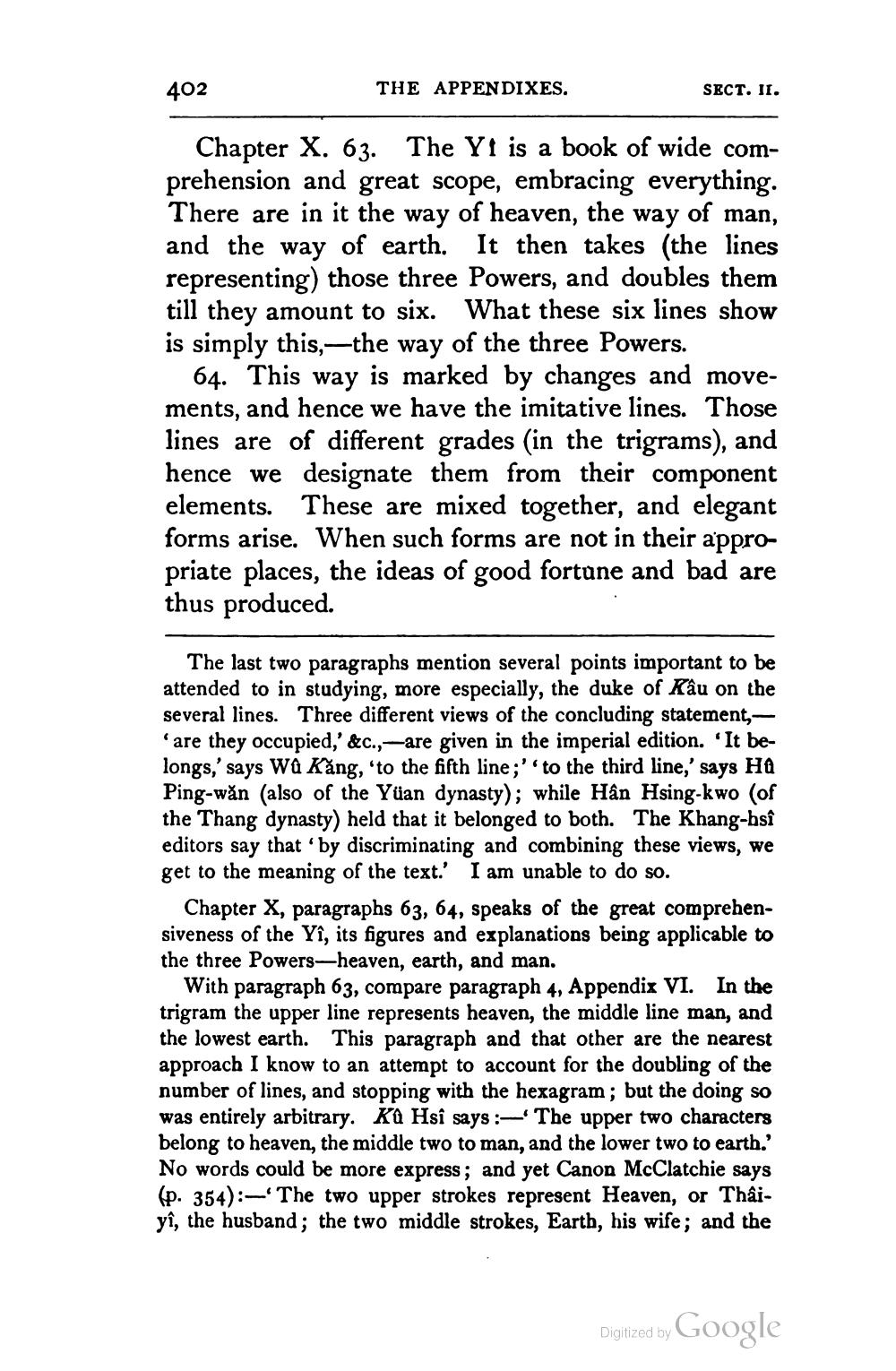________________
402
THE APPENDIXES.
SECT. II.
Chapter X. 63. The Yi is a book of wide comprehension and great scope, embracing everything. There are in it the way of heaven, the way of man, and the way of earth. It then takes the lines representing) those three Powers, and doubles them till they amount to six. What these six lines show is simply this, the way of the three Powers.
64. This way is marked by changes and movements, and hence we have the imitative lines. Those lines are of different grades (in the trigrams), and hence we designate them from their component elements. These are mixed together, and elegant forms arise. When such forms are not in their appropriate places, the ideas of good fortune and bad are thus produced.
The last two paragraphs mention several points important to be attended to in studying, more especially, the duke of Kâu on the several lines. Three different views of the concluding statement
are they occupied,' &c.,-are given in the imperial edition. It belongs,' says Wu Kang, 'to the fifth line;''to the third line,' says HQ Ping-wăn (also of the Yuan dynasty); while Hân Hsing-kwo (of the Thang dynasty) held that it belonged to both. The Khang-bsî editors say that by discriminating and combining these views, we get to the meaning of the text.' I am unable to do so.
Chapter X, paragraphs 63, 64, speaks of the great comprehensiveness of the Yi, its figures and explanations being applicable to the three Powers-heaven, earth, and man.
With paragraph 63, compare paragraph 4, Appendix VI. In the trigram the upper line represents heaven, the middle line man, and the lowest earth. This paragraph and that other are the nearest approach I know to an attempt to account for the doubling of the number of lines, and stopping with the hexagram; but the doing so was entirely arbitrary. Ko Hsi says The upper two characters belong to heaven, the middle two to man, and the lower two to earth.' No words could be more express; and yet Canon McClatchie says (p. 354):- The two upper strokes represent Heaven, or Thaiyî, the husband; the two middle strokes, Earth, his wife; and the
Digitized by Google




